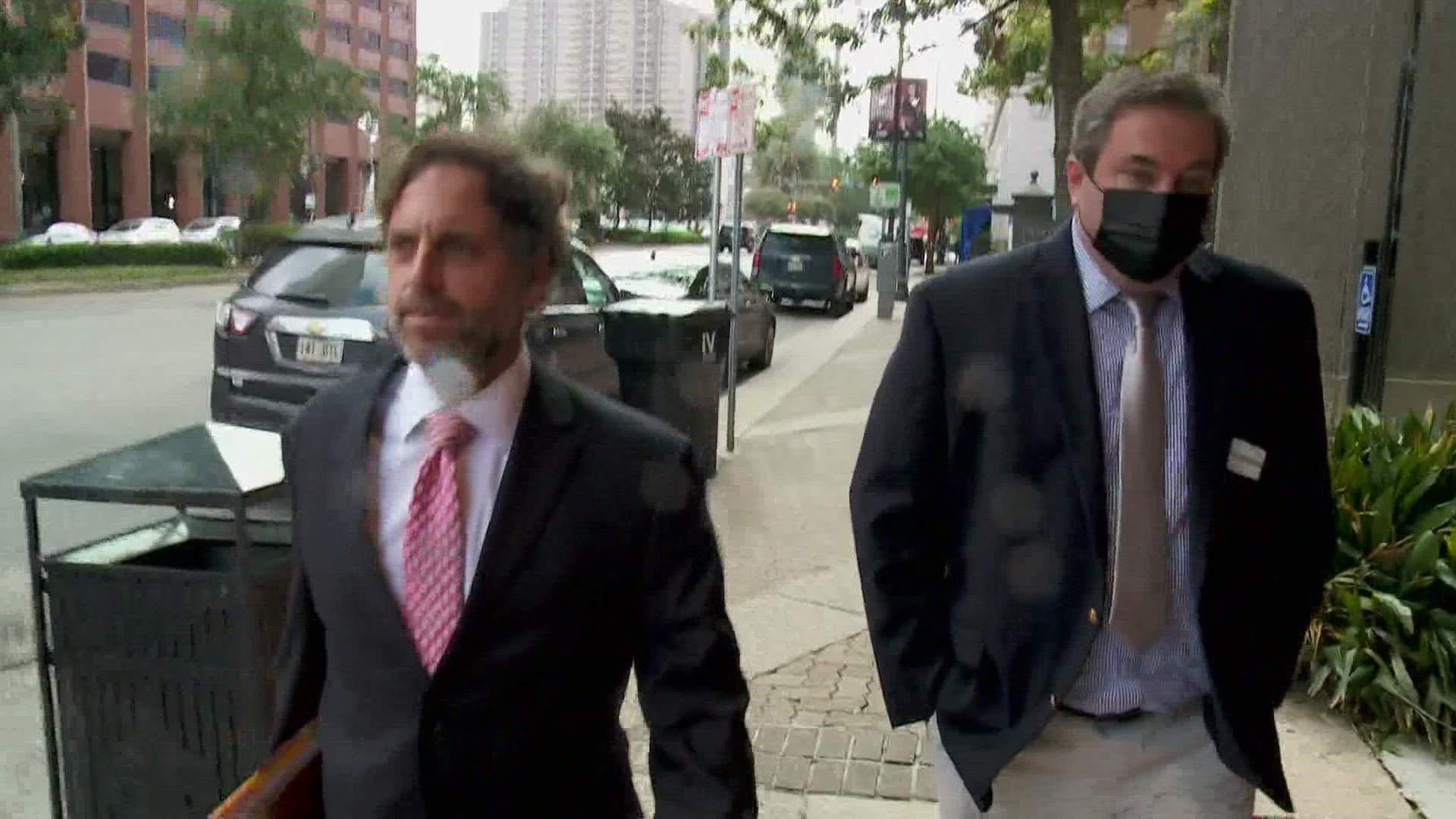NEW ORLEANS — Another domino fell in the sweeping federal corruption probe of New Orleans’ permitting office Wednesday as former city inspector Brian Medus pleaded guilty to conspiracy.
Medus is the second city inspector to plead guilty in a bribery scheme involving falsified permits and inspection records. Former building inspector Kevin Richardson pleaded guilty in October 2019 to a scheme that dated back to 2014.
Several other inspectors working for City Hall or as third-party inspectors working on the city’s behalf have also been charged this year with falsifying inspection records or have been implicated in criminal investigation reports.
Medus, 45, was the assistant chief mechanical inspector for the city, approving permits and inspecting work on heating and air conditioning systems across New Orleans. He resigned in April just before he was indicted along with the Code Enforcement Director of the city of Kenner, James Mohamad.
On Wednesday, Medus stood in U.S. District Judge Lance Africk’s court wearing a blue blazer and tan pants and admitted he was guilty of conspiracy as a part of a bribery scheme with Mohamad. As a part of a plea agreement with federal prosecutors, Medus signed court documents laying out the scheme, which started as far back as 2011 and continued through 2019.
The records say Mohamad ran an HVAC company but didn’t have a license to do work in the city of New Orleans, so he would pay Medus $300 a pop to issue permits using other contractors’ names and licenses. Mohamad would then pay contractors $500 per instance to use their names and licenses to get the HVAC work for himself, according to the documents signed by Medus and the government.
The records say that in all, Mohamad paid Medus and others $93,000 in furtherance of the scheme.
In a particularly egregious example of the alleged fraud, Medus admitted issuing fraudulent permits for Mohamad’s company to do work in June 2019 in a house in the Lower 9th Ward, then let Mohamad inspect and approve his own firm’s handiwork as a third-party inspector on behalf of the city of New Orleans.
The contractor whose license was used, who is identified in court records as “Contractor #2,” did sign paperwork for the city stating that his crew installed the HVAC system, even though federal prosecutors allege it was really Mohamad’s company.
WWL-TV reached out to the contractor and left a message Wednesday afternoon but did not hear back.
Mohamad and Medus have active state licenses as mechanical inspectors for the third-party inspection firm IECI.
Medus and his attorney, Dylan Utley, declined an interview after the hearing, but Utley said Medus would cooperate with a federal investigation that's been going on for years and goes a lot deeper than Medus and Mohamad.
The owner of IECI, Randy Farrell, was recently implicated in another federal indictment against members of his family. Medus and other city inspectors also did work for IECI on the side. One of them, former city Chief Building Official Larry Chan, was arrested along with Farrell in Jefferson Parish and charged with falsifying inspections.
Medus renewed his inspectors’ license with IECI in July, after he had already been indicted and left City Hall. State records show Medus and several other current and former city inspectors kept active licenses as IECI inspectors even while they were still working for the city, even though city leaders ordered their inspectors to stop working as third-party inspectors years ago.
The Medus case was investigated by the FBI and the New Orleans Office of Inspector General with assistance from the Louisiana State Licensing Board for Contractors. The OIG fired its lead investigator on the case, Kristen Morales, in January, accusing her of administrative violations and untruthfulness.
In recent letters to District Attorney Jason Williams, Interim Inspector General Ed Michel emphasized that current OIG investigators looking at the permitting office are free of so-called “Giglio” issues, implying that Morales had been placed on a roster called a “Giglio list.” The Giglio rule requires prosecutors to inform defendants about investigators whose credibility has been repeatedly questioned.

